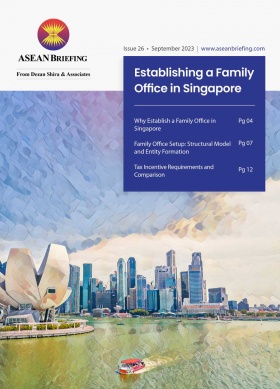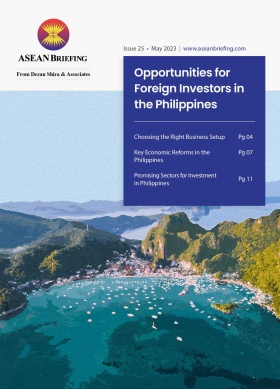MAS Sets New Standard with Digital Platform for ESG Data Collection
The Monetary Authority of Singapore launched a new digital platform called Gprnt (pronounced as Greenprint), which aims to simplify how the financial sector collects, access, and acts upon environmental, social, and governance (ESG) data.
ESG refers to a set of corporate governance standards that reflect a company’s impact on environmental, social, and governance externalities. ESG indicators are used by both consumers and investors seeking to make sustainable and socially conscious decisions. Investors of all stripes are increasingly using them as a means of assessing a company’s risk exposure and growth opportunities.
Gprnt will be fully implemented in the first quarter of 2024.
Focus on ESG factors for businesses in Southeast Asia remains at a relatively early stage compared to global markets. However, there has been increasing awareness and adoption of ESG-related policies across regional governments. As such, Singapore stands at the forefront in Asia’s sustainable transition. The government is developing a sustainable financial system that can aid businesses in achieving their ESG targets.
What are the key functionalities of Gprnt?
Gprnt aims to help businesses automate their ESG reporting.
Gprnt will integrate the digital systems employed by businesses in their daily activities such as bookkeeping, payment gateways, and networks for artificial intelligence. These integrations will allow businesses to consent to the release of data via application programing interfaces (API) and enable Gprnt to compute their sustainability metrics.
Gprnt will compute source data into ESG-related outputs for business reports and corporate references. The platform will use intelligent document processing to extract the data from files uploaded by users. As such, the platform will cater to the mapping of sustainability metrics across key global reporting standards automatically generate basic sustainability reports for businesses, and reduce their corporate costs.
This will reduce duplicate reporting for businesses that adhere to different sustainability reporting standards if their activities span multiple markets. Moreover, businesses can share their ESG reports with financial institutions, government bodies, and industry partners, among others.
Importantly, Gprnt can fully support the ESG reporting needs of small and medium enterprises (SMEs). The platform’s reporting solutions and integration with government bodies such as the Accounting and Corporate Regulatory Authority (ACRA), the Enterprise Singapore, and the Infocomm Media Development Authority (IMDA) are vital in assisting SMEs in commencing their sustainability reporting journeys.
Expanding climate reporting to more industries
The Singapore Exchange (SGX) will begin mandating more industries to submit environmental, social, and governance (ESG) reports for the 2024 financial year. For 2023, climate reporting was made mandatory for businesses engaging in the financial, agriculture, energy, food, and forest products industries. This has now been extended to the materials buildings, and transportation industries for 2024.
What is included in the sustainability report?
The sustainability report must include the following components:
- Material ESG factors;
- Climate-related disclosures;
- Policies and targets;
- Sustainability reporting framework; and
- Board statement and governance structure for sustainability practices.
Conclusion
In conclusion, the launch of the Gprnt platform by the Monetary Authority of Singapore marks a significant step towards streamlining and enhancing ESG reporting processes for businesses in Southeast Asia. By providing a digital solution that automates data collection, computation, and reporting, Gprnt not only simplifies the complex task of ESG reporting but also enables businesses to align with global sustainability standards more efficiently.
Singapore’s proactive approach to promoting sustainable practices and its commitment to developing a robust financial ecosystem underscores its leadership role in Asia’s sustainable transition. With the expansion of climate reporting mandates to additional industries by the Singapore Exchange, there is a clear signal of the growing importance placed on ESG considerations across sectors.
About Us
ASEAN Briefing is produced by Dezan Shira & Associates. The firm assists foreign investors throughout Asia and maintains offices throughout ASEAN, including in Singapore, Hanoi, Ho Chi Minh City, and Da Nang in Vietnam, in addition to Jakarta, in Indonesia. We also have partner firms in Malaysia, the Philippines, and Thailand as well as our practices in China and India. Please contact us at asean@dezshira.com or visit our website at www.dezshira.com.







